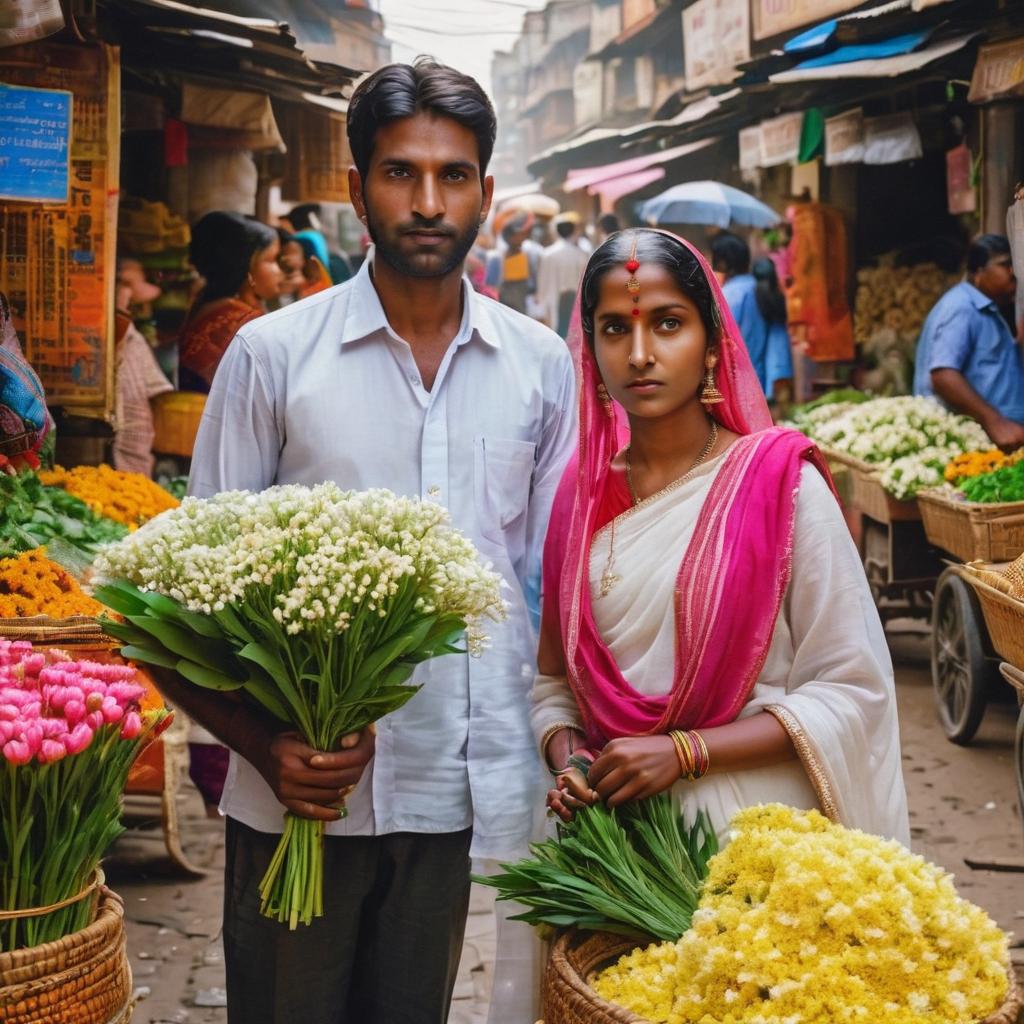Bride for Sale: Dhadicha Pratha, The Shameful Practice of Wife Renting in India

- Country:
- India
We are all familiar with ideas like renting homes, vehicles, and rooms, but not many are aware of a troubling practice in some Indian communities where women are effectively hired out as wives. This blog will help you comprehend the extent of depravity that can exist in a patriarchal culture, even though this revelation may be difficult to accept.
Even though India has made strides in the direction of gender empowerment, there are many heartbreaking examples that show how women are still mistreated in some parts of the nation even after the country gained its independence. The enduring presence of nonsensical traditions highlights the sexual harassment and objectification that women experience. An awful illustration of this kind of custom may be found in the Indian town called "Dhadicha Pratha."
Bride marketplaces are common in nations like Pakistan, Burma, and Bulgaria, but this practice found its way into India. The Shivpuri district in Madhya Pradesh has garnered attention for the practice of renting out girls to men, with criteria such as virginity and physical appearance playing a role in the selection process.
What is Dhadicha Pratha?
Dhadicha Pratha, also referred to as Dadhicha custom, involved the "rental" of wives or daughters, typically for a period of time ranging from days to years. Families, including husbands, would offer their daughters or wives for rent at a designated market. Wealthier men would select these women, often based on appearance and age (younger girls commanding higher prices). A contract would be established, with some accounts mentioning a price as low as 10 rupees.
How Are The Girls Priced?
In Dhadicha, unmarried girls between the ages of 8 and 15 are typically given preference over married women. The bride is paid for the hour, day, week, month, or year that the guy wishes to have her as his wife. When the agreement expires, either the same guy renews it or a new agreement is established with a different man, renting the bride to a new party.
Typically, the agreement is set at between Rs. 15,000 and Rs. 25,000 per bride. The family will offer a larger fee the younger the bride. If the bride is stunning, physically appealing, and a virgin, the price can occasionally reach up to 2 lakhs. Girls who aren't virgins are priced for Rupees 10,000 to 15,000 based on their age, skin color, and the number of men they have slept with before as a part of their contractual marriages.
Process Of Becoming Girl To Bride
Once they are rented, they are married off for a specific period. These brides are frequently called "Paro" or "Molki," which translates to "the one with a price." These young girls are raped daily by several males in the family as well as by their husbands. To sate their sexual cravings, any male in the family is welcome to spend the night with them. In certain homes, the father-in-law is permitted to engage in sexual relations with the girl. This is justified by the fact that they paid the same amount for the female.The status of the girl is reduced to nothing more than a sex toy used to have fun by men and as an income-generating machine for the parents. Hence, the parents in this village prefer having more daughters which means more and more money in the family.
Action Taken Against Dhadicha Pratha
There are currently no specific laws directly addressing Dhadicha Pratha in India. However, existing legislation can be used to fight against this practice.A few of non-governmental organizations have noticed and are making a concerted effort to raise awareness of the issue. They are working to raise awareness that it is against the law to buy or sell women. On the other hand, villagers usually argue that it is an important source of income for them and a part of their custom.
However, existing legislation can be used to fight against this practice. Here's a breakdown:
-
Existing Laws: The Immoral Traffic Prevention Act (ITPA), Bonded Labour System (Abolition) Act, Child Labour (Prohibition and Regulation) Act, Juvenile Justice Act, and the Indian Penal Code (IPC) all prohibit practices like bride trafficking, forced labor, and commercial sexual exploitation.
-
Challenges: Loopholes exist in how these laws address human trafficking and slavery. This makes it difficult to identify and prosecute Dhadicha Pratha cases.
-
Action Needed: Increased awareness and stricter enforcement of existing laws are crucial.
Conclusion:
All types of forced begging, bonded work, and trafficking are outlawed under the Indian Constitution. But the state of affairs right now is worse than anyone could have imagined. In the nation, bride trafficking is openly practiced under the cover of meaningless rites and customs. It is ridiculous that parents themselves are devoid of empathy and sympathy toward their daughters. As a result, strict legislation appears to be the wisest choice. It is imperative that the state recognize this, enact stronger legislation, and educate the public about how illegal it is in its original form. It is important to always remember that there is a single, worldwide truth that holds true for all nations.
(Disclaimer: The views and opinions expressed on this blog are those of the authors and do not necessarily reflect the official policy or position of any other agency, organization, employer, or company. Any content provided by our bloggers or authors is of their opinion and is not intended to malign any religion, ethnic group, club, organization, company, or individual.)










